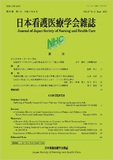Japanese
English
- 有料閲覧
- Abstract 文献概要
- 参考文献 Reference
抄 録
目的:本研究は、視覚障がいのあるがん患者が療養生活において抱える苦痛について明らかにする。方法:20 歳以上の全盲・弱視のがん体験者(先天・中途)男性14名・女性6名に半構造化面接を実施し、質的帰納的分析を行った。結果:視覚障がいのあるがん患者が療養生活において抱える苦痛は、視覚障がいのあるがん患者が抱える身体的苦痛として【がん治療に伴う不快な症状】【視覚障がいに伴うセルフケア困難】、視覚障がいのあるがん患者が抱える社会的苦痛として【視覚障がい者を理解した対応がされないことによる苦痛】【視覚障がいに伴う移動の負担】【仕事と治療の両立困難】【視覚障がいを補う情報伝達手段の不足】【偏見を感じさせる態度】【医療関係者に対する気兼ね】【同意書署名の範囲が制限される】視覚障がいのあるがん患者が抱える精神的苦痛として【視覚障がいのあるがん患者同士で共有できないもどかしさ】【医療関係者から納得できる情報量の不足による不安】【がん治療が視力に影響することへの不安】視覚障がいのあるがん患者が抱えるスピリチュアルペインとして【死への恐怖】であった。結論:視覚障がいのあるがん患者に対するセルフケア支援や多様な情報提供手段の活用、スピリチュアルペインや精神的苦痛の緩和に必要な支援について医療関係者の知識・技術・態度を高める教育が必要であることが示唆された。
Abstract
Purpose: This study aims to identify the specific pain experienced by visually impaired cancer patients undergoing recuperation life. Methods: Semi-structured interviews were conducted with 14male and 6female individuals, either blind or with low vision (congenital and acquired), aged 20 years or older, with current or previous cancer. Qualitative inductive analysis was used to interpret the data. Results: The pain experienced by visually impaired cancer patients undergoing recuperation life included physical pain, such as uncomfortable symptoms associated with cancer treatments and difficulties in self-care due to visual impairment. Social pain was significant and included a lack of support and understanding for visually impaired patients, the burden of mobility due to visual impairment, challenges in balancing work with treatment, inadequate communication methods to compensate for visual impairment, attitudes that conveyed prejudice, hesitancy toward medical professionals, and restrictions in signing consent forms. Mental pain included frustration from not being able to share experiences with other visually impaired cancer patients, anxiety over insufficient information from medical professionals, concerns about the impact of treatment on their vision, and spiritual pain primarily centered around the fear of death. Conclusion: The findings suggest the need for educating healthcare professionals to enhance their knowledge, skills, and attitudes regarding support for visually impaired cancer patients. This includes assistance with self-care, the use of diverse methods for providing information, and the alleviation of spiritual and psychological pain.
Copyright © 2025, Japan Society of Nursing and Health Care All rights reserved.


